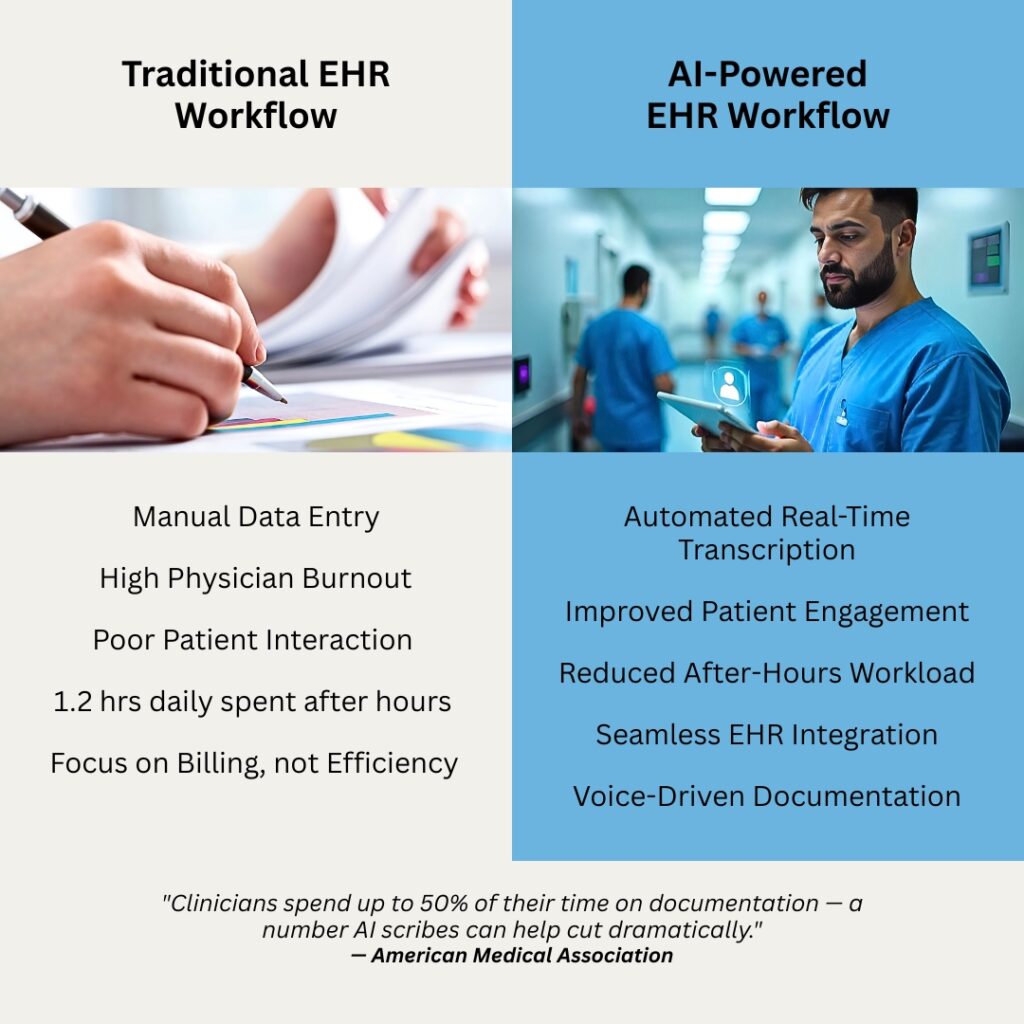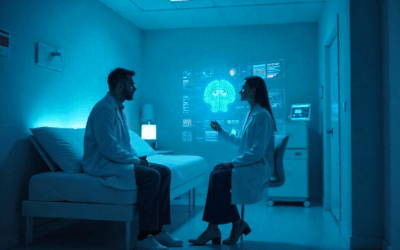As healthcare continues its rapid shift toward digitization, AI medical scribes are emerging as powerful tools to streamline documentation, reduce physician burnout, and enhance clinical workflows. But integrating these intelligent assistants into the Electronic Health Records (EHR) systems isn’t without its challenges. Understanding how to navigate these hurdles—and implement proven best practices—is key to successful adoption.
Implementing AI medical scribes within Electronic Health Records (EHR) systems brings new opportunities, including reduced documentation burdens and streamlined workflows. To gain the most value for both providers and patients, you need to understand the potential challenges and follow effective strategies during the adoption process.
Why EHRs Alone Aren’t Enough
EHRs focus largely on billing, regulatory compliance, and insurance processes—not clinical efficiency. While they’ve digitized paper records, EHRs have introduced a new layer of administrative burden, leading to increased “provider/clinician burnout.”
AI scribes are designed to transcribe real-time patient-physician conversations and auto-populate EHR fields. This enhances efficiency, reduces clerical burden, and improves patient interactions. As studies suggest, clinicians spend up to 50% of their time on documentation. Additionally, they spend 1.2 hours outside of scheduled hours, either on scheduled appointment days or unscheduled days, according to the American Medical Association—an area ripe for automation by listening to clinical conversations, generating structured notes, and seamlessly inserting them into the appropriate fields within the EHR.

AI scribes aren’t just add-ons—they are workflow transformers that is best integrated into an existing EHR environment.
Common EHR Integration Challenges
1. Compatibility with EHR Systems
Many clinics still operate on outdated or non-interoperable EHR platforms, making it difficult to transfer notes.
Best Practice: Choose an AI scribe provider, like Dorascribe, to seamlessly transfer notes into your EHR.
2. Data Privacy & HIPAA Compliance
AI scribes handle sensitive patient data. Ensuring HIPAA compliance is essential for legal protection and patient trust.
🔗 HHS.gov – HIPAA Privacy Rule Summary
Best Practice: Opt for solutions with end-to-end encryption, on-premises deployment options, and BAA (Business Associate Agreement) availability.
3. Physician Trust and Adoption
Clinician buy-in is crucial. Without understanding the benefits or trusting the accuracy of AI transcriptions, adoption can stall.
Best Practice: Provide training and real-time demos, and start with non-critical tasks (like SOAP note generation) to build confidence.
📎 See how Dorascribe helps reduce physician burnout with AI
4. Workflow Disruption During Rollout
Initial adoption can temporarily slow down clinical workflows, especially without proper onboarding.
Best Practice: Use a phased implementation plan, starting with one department. Monitor feedback and optimize before scaling system-wide.
5. Cost and ROI Considerations
The upfront cost of AI scribes may raise eyebrows, especially in smaller practices.
Best Practice: Focus on long-term ROI. Consider savings from reduced charting hours, improved documentation quality, and increased patient throughput.
Proven Best Practices for AI Scribe-EHR Success
| Practice | Why It Works |
| Start with a pilot program | Allows for iterative learning before full deployment |
| Train providers on AI usage | Builds trust and boosts efficiency |
| Choose scribe tools with NLP + medical context | Improves transcription accuracy |
| Ensure EHR interoperability | Prevents double-entry and workflow friction |
| Establish security compliance early | Avoids HIPAA penalties |
The Future Is Voice-Driven and Intelligent
Integrating AI scribes is more than just a tech upgrade — it’s a foundational step in healthcare’s digital transformation. By easing EHR burdens, these tools give clinicians back their most valuable asset: time with patients.
💡 Ready to transform your clinic’s efficiency or private practice? Book a Dorascribe Demo Today




